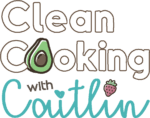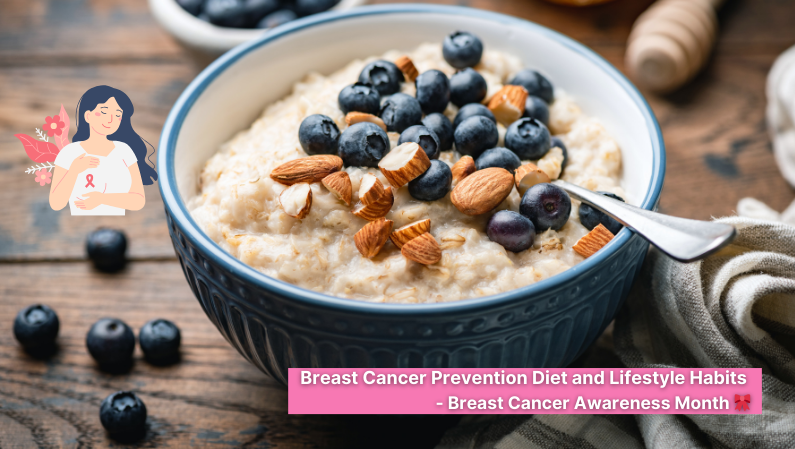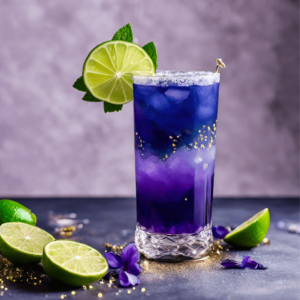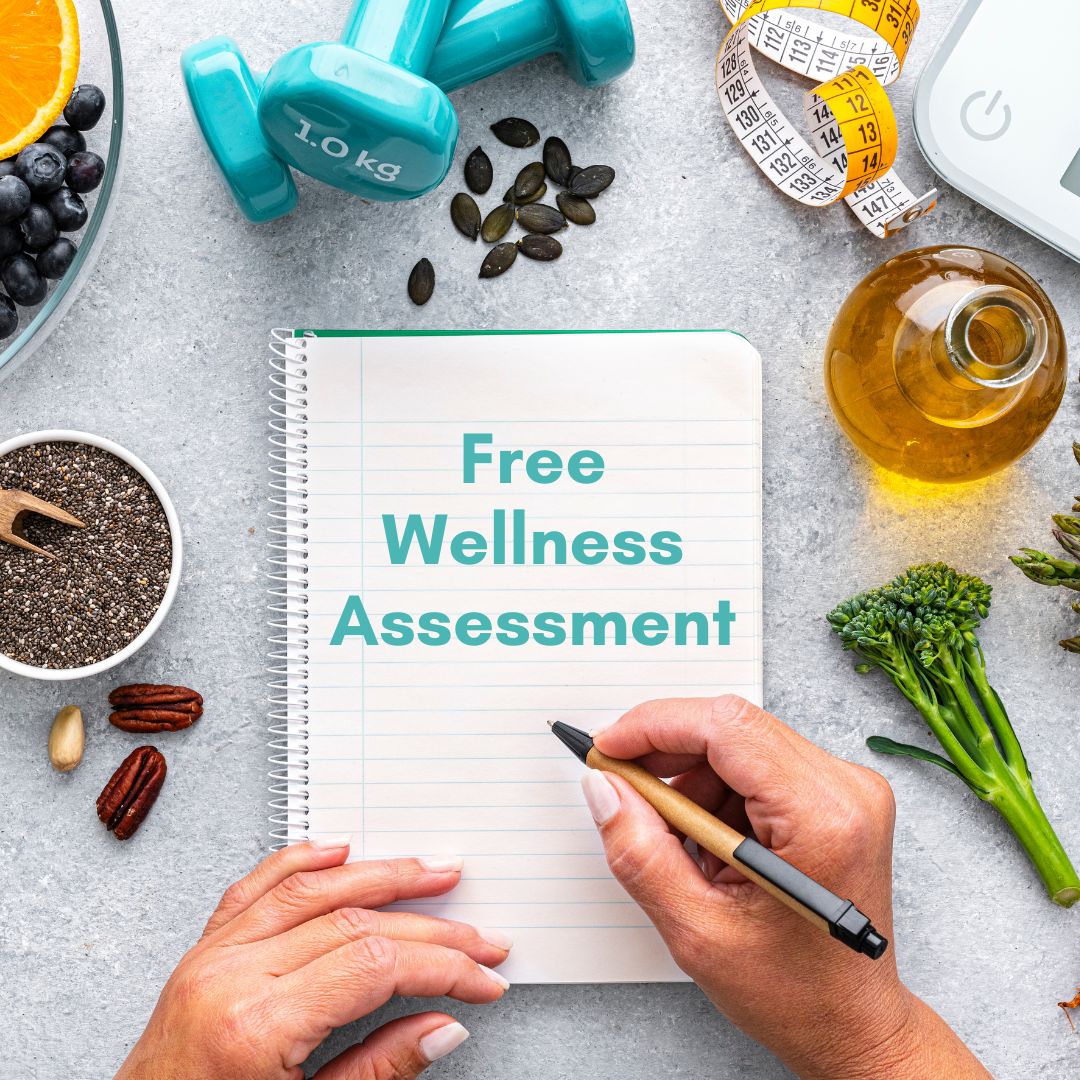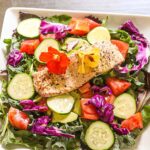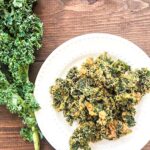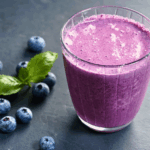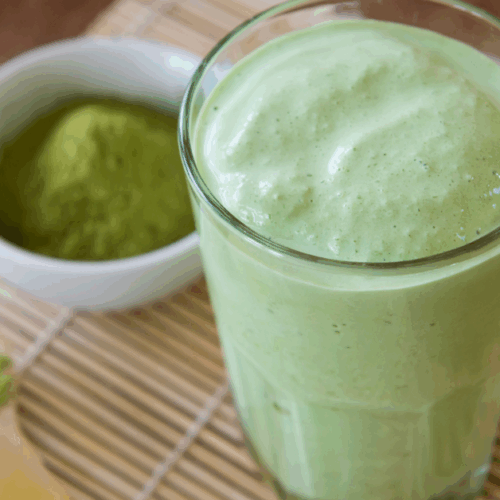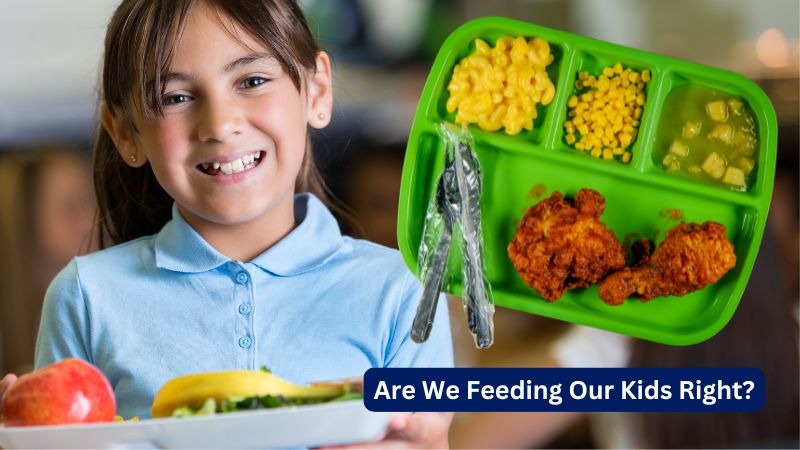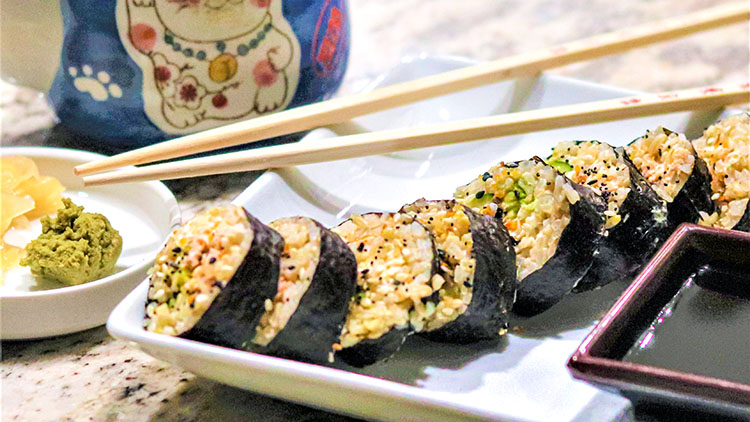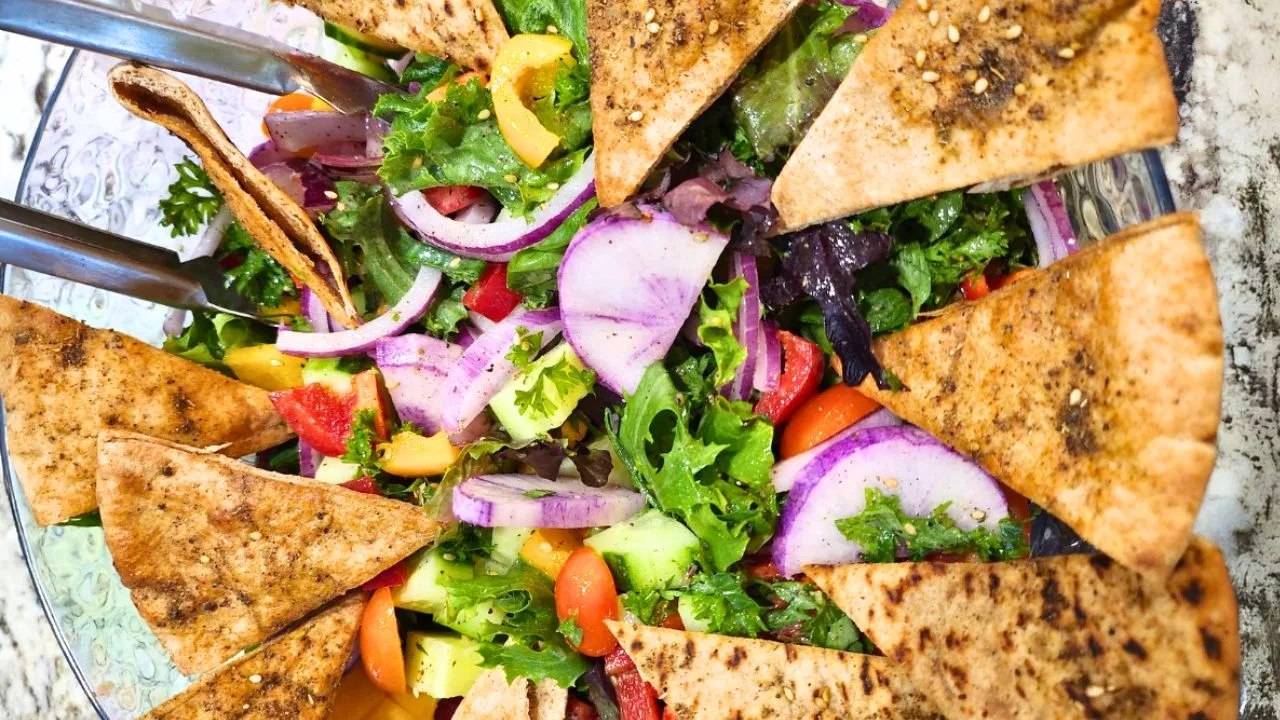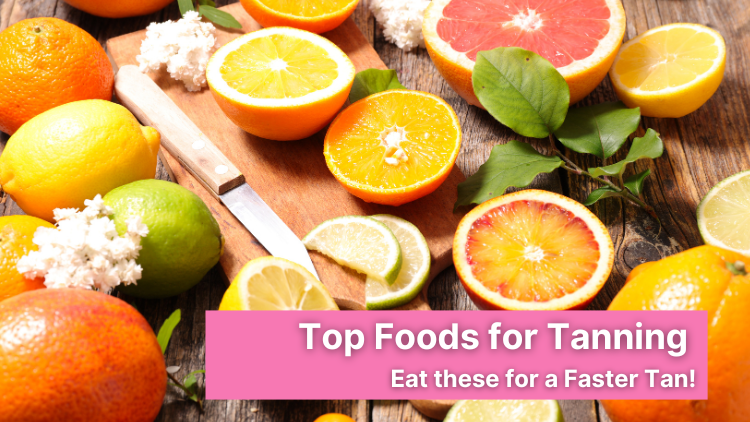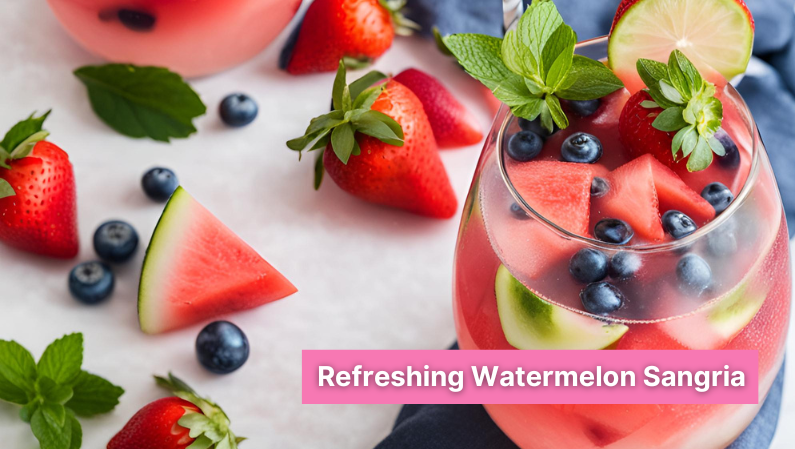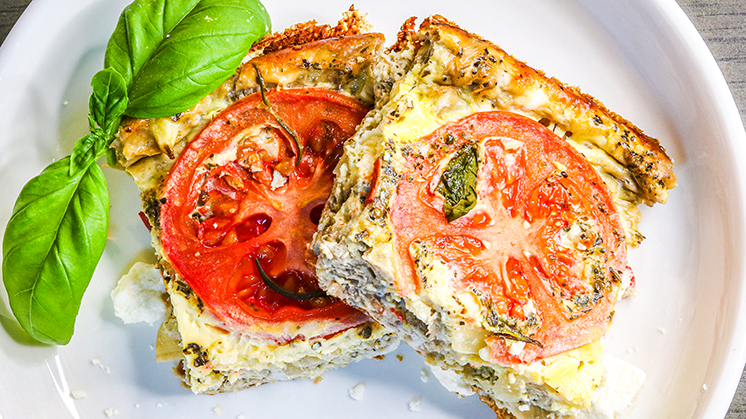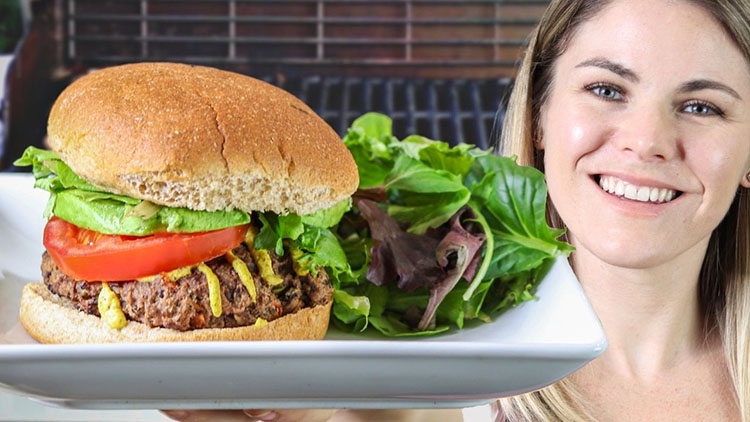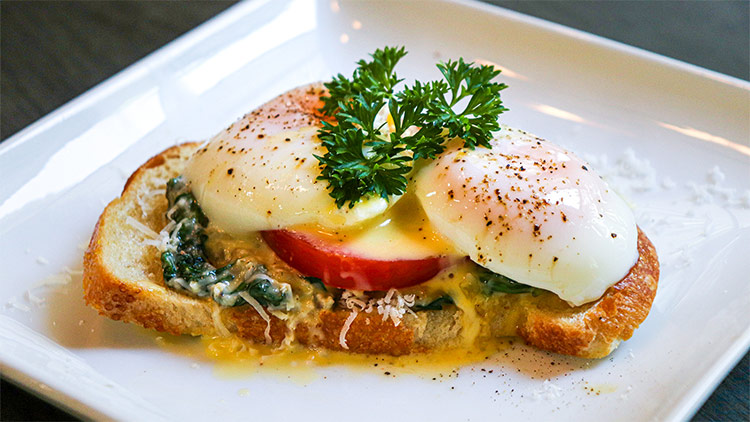Share This

Pages on this site may contain affiliate links, meaning if you book or buy something, I may earn an affiliate commission at no additional cost to you. Thank you for your support! Learn More
Also note: While I am a certified nutrition coach, I am not a medical doctor. Information here is not intended to be a replacement for the advice you should seek from your doctor.
As we step into the month of October, we’re not just celebrating the fall foliage and pumpkin spice lattes. We are also embracing Breast Cancer Awareness Month, symbolized by the iconic pink ribbon 🎀. It is a time when we come together to raise awareness, show our support, and make a real impact in the fight against breast cancer. But awareness is just one part of the equation. This month, let’s take a closer look at what we can do individually to champion our breast health throughout the year, starting from the optimal breast cancer prevention diet to simple healthy lifestyle habits we can all start adopting.
This is a topic close to my heart, and I’m here to guide you on a journey towards a healthier, more empowered you! 💪🏼
Breast Cancer: The Preventative Role of Diet and Excercise 🍊
Breast cancer is a significant health concern in the United States, second only to skin cancers as the most common cancer among women. The statistics provided by the American Cancer Society for the year 2023 reveal that one in every three -or approximately 30%- new cancer cases among women is breast cancer. In addition, breast cancer is particularly significant for middle-aged and older women. The median age at which breast cancer is typically diagnosed stands at 62 years. However, this does not mean that younger women are not at risk of suffering from this condition, sometimes without being diagnosed for years.
This is where prevention and early diagnosis play a pivotal role in fighting against breast cancer. While there are factors beyond our control (such as genetics, hereditary factors, or socio-economic conditions), there is also a lot that we can control. Just think of the fact that bad diets, inactivity, smoking, and drinking alcohol are among the causes of up to 90 percent of cancers. This means that adopting a breast cancer prevention diet and incorporating healthy lifestyle habits can significantly reduce the risk of suffering from this disease, and live a happier and healthier life.
Let’s then have a look at how we can lower our risk of suffering from breast cancer, starting with the best and worst foods to incorporate into our diet.
Breast Cancer Prevention Diet: The Basics 📚
A well-balanced and health-conscious diet can be a powerful ally in the fight against breast cancer. While it’s important to remember that no single food can prevent this disease, research suggests that certain foods contain nutrients and compounds that may contribute to reducing your risk. In particular, a breast cancer prevention diet should be centered around:
- Nutrient-Packed Foods: A diet rich in fruits, vegetables, whole grains, lean proteins, and healthy fats provides essential nutrients and antioxidants that bolster your body’s defenses and repair damaged cells.
- High-Fiber Foods: A high-fiber diet plays a vital role in hormone regulation and reducing inflammation. In addition, foods rich in fiber have a positive role in promoting gut health and microbiome diversity. In turn, these have been positively linked to a lower risk of suffering from breast cancer.
- Breast-Healthy Nutrients: Specific nutrients like folate, omega-3 fatty acids, and antioxidants found in foods like salmon, leafy greens, and berries have been linked to breast cancer prevention.
- Avoid Processed Foods: Steering clear of highly processed, sugary, and fatty foods is equally important. These items can contribute to weight gain and inflammation, both of which are associated with an increased breast cancer risk.
Foods to Eat for Breast Cancer Prevention 🟩
More specifically, here are some foods we should consume daily as part of a breast cancer prevention diet.


❤️❤️ Don’t miss a recipe or post! Make sure you remember to sign up for my Newsletter and follow me on social ❤️❤️!
Get Your Free Stuff!
1. Cruciferous Vegetables 🌿
Broccoli, cauliflower, Brussels sprouts, and kale are rich in cancer-fighting compounds. In particular, these vegetables contain sulforaphane and indole-3-carbinol, compounds that may help inactivate estrogen receptors in breast tissue.
2. Berries 🍓
The antioxidants in berries (blueberries, raspberries, and strawberries), like anthocyanins, can help protect against cell damage. This, in turn, is one of the major factors leading to cancer. Add them to your morning yogurt or blend them into a smoothie for your daily dose of anti-tumoral nutrients. For a quick and convenient option, check out Smoothiebox, a fantastic smoothie delivery company. And don’t forget to use my discount code if you do!.
3. Legumes 🌱
Lentils, beans, and chickpeas provide a good source of fiber and plant-based proteins, essential for promoting better gut health and lowering inflammation in the body. Incorporate them into soups, salads, or as a meat substitute in your favorite dishes.
4. Nuts and seeds 🥜
Nuts, and more specifically walnuts are a great source of heart-healthy fats, including alpha-linolenic acid, which has a powerful effect on preventing cell oxidation. According to a 2015 study, people who regularly consume walnuts, peanuts, and almonds are 2–3 times less likely to develop breast cancer than those who don’t consume any nuts. Similar results have been found for hemp, flax, and chia seeds.
5. Fatty Fish 🐟
Salmon, mackerel, and sardines are packed with omega-3 fatty acids and antioxidants like astaxanthin. Both of them have powerful anti-inflammatory properties and might protect against different types of cancer, including breast cancer.
6. Citrus Fruits 🍋
Citrus fruits -like tangerines, lemons, limes, oranges, and grapefruits are rich in precious compounds that may protect against breast cancer. Among these are powerful antioxidants such as carotenoids (beta cryptoxamina and beta carotene), flavonoids (quercetin, naringerin, and hesperetin), folates, and vitamin C.
7. Oats 🌾
Whole grains, including oats, are loaded with dietary fiber, antioxidants, and phytoestrogens (plant-based compounds that have been associated with a lowered risk of osteoporosis, heart disease, and breast cancer), which can help prevent breast cancer.
Is Soy Safe for Breast Cancer? 🌱


Soy has been the subject of much controversy and mixed messages when it comes to its relationship with breast cancer. For years, it was demonized, with concerns that its consumption might increase breast cancer risk. However, as research has advanced, the picture has been reversed.
Let’s start by saying that the demonization of soy was primarily based on concerns about its phytoestrogen content. This compound resembles estrogen, a hormone that plays a role in breast cancer development and growth. In particular, the allegation was around the fact that the isoflavones in soy might increase breast cancer risk by mimicking the effects of estrogen in the body. However, more recent research has provided a more comprehensive understanding of the topic.
In fact, there is evidence to suggest that moderate soy consumption may have a protective effect against breast cancer. Some studies have shown that women who regularly include soy foods in their diet may have a lower risk of breast cancer. This is particularly true in Asian countries where soy consumption is traditionally higher.
The key lies, as always, in moderation. Consuming moderate amounts of whole soy foods, such as tofu, tempeh, edamame, and soy milk, can be part of a balanced diet and may offer health benefits without increasing breast cancer risk.
Foods to Avoid for Breast Cancer Prevention ❌
Similarly, certain foods have been associated with an increased risk of breast cancer and should be therefore limited or, even better, avoided.
Among the foods to avoid for breast cancer prevention are:
- Processed Meats. Products like bacon, sausages, hot dogs, and certain lunch meats contain preservatives and high levels of saturated fats, which can contribute to breast cancer risk.
- Excessive Alcohol. Drinking alcohol is linked to a higher risk of breast cancer. It’s advisable to limit alcohol intake to a moderate level or avoid it altogether.
- Sugary and Processed Foods. Foods and drinks with added sugars can lead to weight gain and inflammation, which are risk factors for breast cancer.
- Trans Fats. Foods with trans fats, often found in fried and commercially baked goods, have been associated with an increased risk of breast cancer. Always check food labels for “partially hydrogenated oils.“
- Red Meat. High consumption of red meat, especially when cooked at high temperatures (grilled or charred), has been linked to an elevated risk. If you eat meat, opt for lean cuts or white meat (chicken, turkey, and rabbit).
- Hormone-Disrupting Chemicals. Be cautious of endocrine-disrupting chemicals, like Bisphenol-A (BPA), which can be found in certain plastic containers and canned foods. Opt for glass or BPA-free containers, and choose fresh or frozen foods over canned alternatives.
- Excessive Dairy. While the relationship is not entirely clear, some studies have suggested that high dairy consumption may be associated with an increased risk of breast cancer. Therefore, it’s advisable to choose low-fat or plant-based alternatives.
- Excessive Salt. High salt intake is associated with an increased risk of stomach cancer, which may indirectly impact breast cancer risk. Choosing fresh, whole foods over highly processed or canned ones can help with this.
- Hormone Replacement Therapy (HRT). Although not a food, postmenopausal women should be cautious with HRT, as it has been linked to an increased risk of breast cancer. Consult with a healthcare provider about alternatives if you are concerned about menopausal symptoms.
Lifestyle Actions for Breast Cancer Prevention 🏃🏽♀️
While diet plays a pivotal role in breast cancer prevention, a healthy lifestyle is equally important to reduce risk factors and be overall healthier and happier. Among the main lifestyle habits that can be implemented as part of a breast cancer prevention strategy are:


- Engage in Regular Exercise: One of the most potent weapons in breast cancer prevention is regular physical activity. Aim for at least 150 minutes of moderate-intensity exercise or 75 minutes of vigorous exercise per week. Whether it’s walking, swimming, or dancing, find something you enjoy to stay active!
- Maintain a Healthy Weight: Striving for a healthy weight not only lowers your breast cancer risk but also has a host of other health benefits. Focus on a balanced diet, based on whole, plant foods, and portion control to maintain or achieve a healthy weight.
- Limit Your Alcohol Intake: Excessive alcohol consumption has been linked to an increased risk of breast cancer. If you choose to drink, do so in moderation. In any case, here are some easy tips I followed during my Dry January.
- Quit Smoking: Smoking isn’t only linked to lung cancer; it’s also associated with an increased risk of breast cancer. Quitting smoking not only improves your overall health and physical resistance but also reduces your risk of breast cancer.
- Perform Regular Breast Self-Exams and Mammograms: Early detection is key. Make it a habit to perform breast self-exams regularly and discuss the appropriate timing for mammograms with your healthcare provider based on your age and risk factors.
Pink-Powered Recipes: How to Prevent Breast Cancer in the Kitchen! 💐🌸
Here are some of my favorite recipes rich in all the precious nutrients and antioxidants linked to lower risks of suffering from breast cancer. All delicious, healthy, and simple to make!
Breast cancer prevention is not just a month-long initiative; it’s a lifelong commitment to well-being. So, continue to explore, learn, and adapt, always keeping your health at the forefront. If you want to share your experience on the matter, my DMs and comments are always open. Here’s to your health, your strength, and your future. 🎀💪
